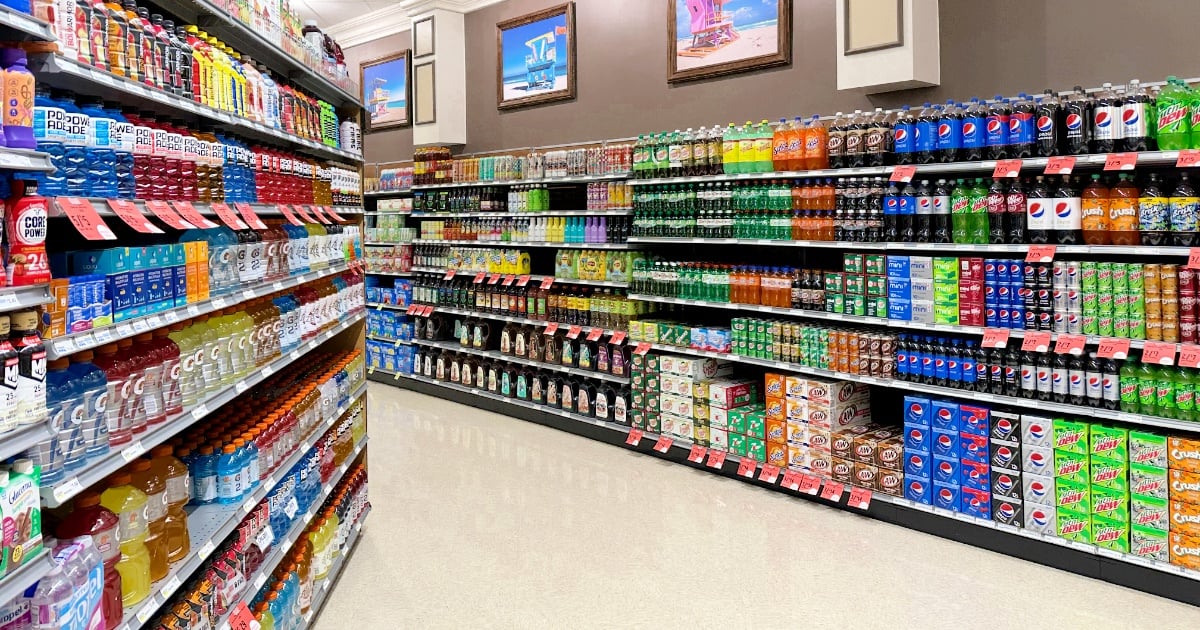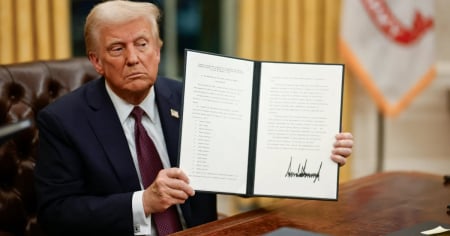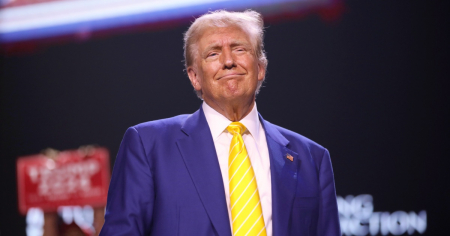
Related videos:
The Trump administration wants to prohibit the purchase of junk food with benefits from the Supplemental Nutrition Assistance Program (SNAP), previously known as Food Stamps.
The initiative, which aims to eliminate products such as sugary beverages, sweets, and ultra-processed foods, has been promoted by the new government officials, although previous attempts have shown that it is not easy to achieve, according to the AP agency.
The Secretary of Health and Human Services (HHS), Robert F. Kennedy Jr., and the Secretary of Agriculture (USDA), Brooke Rollins, have expressed their support for this measure.
Kennedy has been the most emphatic in asking that the program, with a budget of nearly 113 billion dollars and benefiting 42 million Americans -including many Cubans residing in the U.S.-, stop allowing the purchase of "soft drinks or processed foods."
"The only area where I would say we really need to change policy is the SNAP program, food stamps, and school lunches," Kennedy stated to Fox News.
"There, the federal government is paying for it in many cases. And we shouldn't be subsidizing people to eat poison," he added.
For his part, Rollins stated that he will work alongside Kennedy on this issue.
"When a taxpayer puts money into SNAP, do they agree that we use their taxes to provide spoiled food and sugary drinks to children who might need something more nutritious?" she questioned in one of her first interviews after taking office.
"They are enormous questions that we are going to address and work on in the coming months and years," he added.
A difficult change to implement
Despite the support from the government, changing the system is not that simple.
SNAP is regulated by the Food and Nutrition Act of 2008, which establishes that benefits may be used for "any food or food product intended for human consumption," except for alcohol, tobacco, and meals ready for immediate consumption.
To restrict the purchase of certain products, it would require Congress to approve a modification of the law, or for the states to obtain exemptions to limit purchases.
However, according to Katie Bergh, an analyst at the Center on Budget and Policy Priorities, over the past 20 years, various states have attempted to exclude products such as bottled water, soft drinks, chips, ice cream, decorated cakes, and even luxury meats like steak, but none of these proposals have been approved, regardless of whether the president was a Republican or a Democrat.
A report from the Department of Agriculture (USDA) from 2007 argued that there are no clear standards for classifying foods as good or bad.
Additionally, he warned that the restrictions would be costly and difficult to implement and that they would not necessarily change the purchasing habits of the beneficiaries or reduce health issues like obesity
A debate on autonomy and nutrition
SNAP advocates argue that program beneficiaries do not purchase more junk food than other low-income Americans, and that restricting their options undermines their autonomy and dignity.
On average, a person in the program receives 187 dollars a month, which amounts to about 6.16 dollars a day, an amount with which they must manage their food expenses.
SNAP remains a key tool in the fight against hunger in the United States, benefiting millions of people, including many Cubans residing in the country.
However, the possibility of modifying its operation faces legislative, administrative, and public perception challenges, raising doubts about whether the Trump administration will be able to implement these changes.
Frequently Asked Questions about the Junk Food Ban in the SNAP Program
What does the Trump administration want to prohibit in the SNAP program?
The Trump administration seeks to prohibit the purchase of junk food with benefits from the SNAP program. The measure, supported by Health Secretary Robert F. Kennedy Jr. and Agriculture Secretary Brooke Rollins, aims to eliminate items such as sugary beverages and ultra-processed foods from the approved purchases under the program.
What are the challenges of implementing this prohibition in the SNAP program?
Implementing a ban on the purchase of certain products in SNAP requires legislative changes. Currently, the program is regulated by the Food and Nutrition Act of 2008, which allows the purchase of any food intended for human consumption, except alcohol, tobacco, and ready-to-eat meals. Changing this regulation would require Congress to approve an amendment to the law or for states to obtain waivers to restrict purchases.
Why is it considered important to change the policies of the SNAP program?
Changing SNAP program policies aims to promote healthier eating among beneficiaries, who are primarily low-income families, including many Cubans in the United States. The Trump administration argues that subsidizing the consumption of unhealthy foods, which can contribute to health issues like obesity, should not be supported. However, advocates of the program assert that beneficiaries do not purchase more junk food than other low-income Americans and that restricting their options may undermine their autonomy.
What other recent changes has the SNAP program undergone?
The SNAP program has experienced a slight increase in benefits and new eligibility restrictions. Starting in October 2024, the USDA adjusted benefits based on the cost of living and established limitations on savings and work requirements for certain beneficiaries. These changes particularly impact thousands of Cuban families in Florida who rely on the program to make ends meet.
Filed under:





